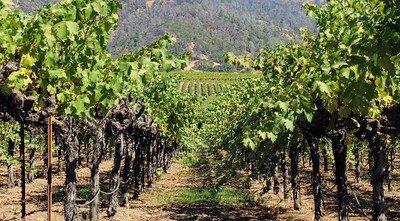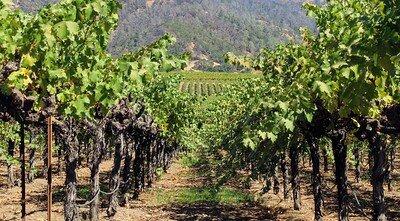Wine country brings many people from all over the world to California. Interns, in particular, are drawn to Sonoma and Napa counties to learn what makes California so special when it comes to the craft of wine making.
Wineries typically need more help during the harvest season, which starts in August and usually ends in November. Interns who want to pursue a career in the wine industry come from Italy, Australia, and Chile–only to name a few.
With the appearance of COVID-19 and President Trump’s restrictions on visa programs, international interns and local wineries are at a huge loss. Local wineries are scrambling to find extra hands to help, and this comes at a time when they tend to be the busiest.
According to the San Francisco Chronicle, Robert Morris, partner and general manager at the Grand Cru Custom Crush in Windsor, said, “We have five interns when we really should have nine.” Morris figured COVID-19 would affect his ability to find international interns, so he recruited domestic workers. After reaching out to six interns, they all dropped out and said “We’re not coming. COVID freaks me out. I can’t find housing,” according to the Chronicle.
Wineries are already facing a multitude of problems, including the stress from nearby wildfires, potentially damaged grapes from the abundance of smoke, and an overall slower economic return from the constant back and forth of opening and closing under COVID-19 restrictions. These environmental and COVID-19 related issues have affected restaurants and bars across California.
Harvest interns normally arrive using the J-1 visa, which grants them the ability to receive training for the job they are interested in. International interns typically travel the world and gather the experience and knowledge needed for future winemakers. They hop from country to country, learning the secrets from each to cultivate their own unique wine in the future.
Andy Smith, of DuMol Winery in Sonoma County, came to the US on a J-1 visa himself, in 1994. Because of this, he primarily hires J-1 interns each season. This season, he hired two from Italy, one from England, and one from Australia. Unfortunately, because of Trump’s restrictions on visas, none of the interns he hired were able to arrive, according to the Chronicle.
These internships tend to be labor intensive. Most shifts last ten hours, six days a week. Typically, they stay and work anywhere between two and five months. They are often paid very well for the work, with most salaries starting at $18 an hour. They are also treated with daily wine tastings, delicious meals, and the full California experience.
Wineries are desperate. Sean Taylor, who is in charge of WineVoyage.org, a website used for harvest internship postings, said, “Normally, a lot of these wineries want someone with two to three harvests under their belt and a [winemaking] degree,” he told the Chronicle. “Now, we’re at the point where it’s like, ‘I just want a competent body.’” Taylor also mentioned that wineries usually finish their hiring months in advance, but this season started with over 40 job postings on his website.
For Sonoma State students and others interested, this is an opportunity of a lifetime to get a real, hands-on winemaking experience at some of the most famous and renowned wineries in the world.





![[Both photos courtesy of sonoma.edu]
Ming-Ting Mike Lee stepped in as the new SSU president following Sakakis resignation in July 2022](https://sonomastatestar.com/wp-content/uploads/2024/04/CC4520AB-22A7-41B2-9F6F-2A2D5F76A28C-1200x1200.jpeg)



























